Question
Who among the following does not belong to the
group? Study the following information carefully and answer the questions given below it. Ten people A, B, C, D,E, F, G, H, I and J are sitting in two rows. Five people in each row facing each other. A, B, C, D and E are facing north. F, G, H, I and J are facing south but not necessarily in the same order. One who is sitting opposite to C sits immediate left of H. C sits third to the right of A. Only one person sitting between H and J. J is sitting one of the right positions of H. One who is sitting opposite to G sits third to the left of B. But B is not sitting at the extreme ends. Number of persons sitting to the left of F and number of persons sitting to the Left of E is same. Only two people are sitting between J and I.Solution
C sits third to the right of A. One who is sitting opposite to C sits immediate left of H Case-1 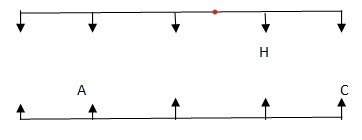 Case-2
Case-2 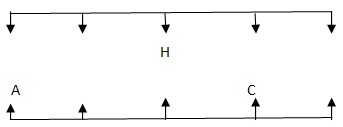 Only one person sitting between H and J. J is sitting one of the right positions of H. Only two people are sitting between J and I. Case-1
Only one person sitting between H and J. J is sitting one of the right positions of H. Only two people are sitting between J and I. Case-1 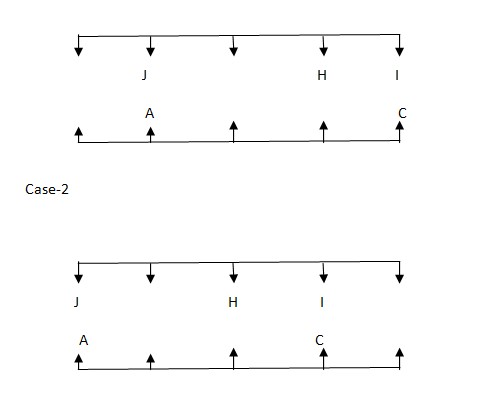 One who is sitting opposite to G sits third to the left of B. Case-1
One who is sitting opposite to G sits third to the left of B. Case-1 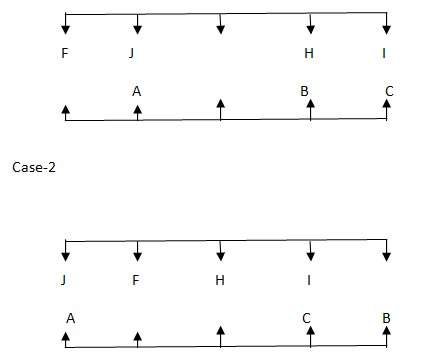 But B is not sitting at the extreme ends. Since Case (2) is not possible. Case-1
But B is not sitting at the extreme ends. Since Case (2) is not possible. Case-1 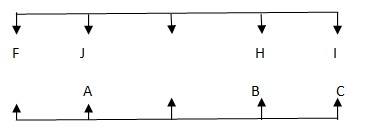 Number of persons sitting to the left of F and number of persons sitting to the Left of E is same. So the final arrangement is Case-1
Number of persons sitting to the left of F and number of persons sitting to the Left of E is same. So the final arrangement is Case-1 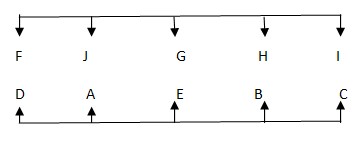
Who won the 'British High Commissioner for a Day' competition, commemorating the International Day of the Girl Child, and led a discussion on Sustainabl...
What is India’s rank in “Democracy Report 2022: Autocratization Changing Nature”, a report which was published by V-Dem (Varieties of ...
What is the name of the first Anti-Submarine Warfare Shallow Water Craft (ASW SWC) delivered by Cochin Shipyard Limited to the Indian Navy?
West Bengal has acquired Geographical Indication (GI) tags for several products. Which product is associated with the brand name "Mouban"?
Consider the following statement about PM Gati Shakti Scheme?
I. It was launched with the aim of coordinated planning and execution of infrast...
Kabaddi World Cup in 2025 will be hosted by?
In the Asia-Pacific region, what is the expected annual capital damage by 2070 due to extreme weather events such as floods and storms?
Who is the author of the book "PMO: Prime Minister's Office Through the Years"?
As per CCPI, 2023; India is the only G-20 country in the top 10 ranks. The first three ranks in the overall ranking were grabbed by
Which of the following statements correctly describes the Vriksharopan Abhiyan 2024 launched by Union Minister Shri G. Kishan Reddy?
Relevant for Exams:



